‘Operational difficulties’ result in arrested Territorians unable to appear before Darwin Local Court
‘Extraordinary’ pressures have hit the Darwin Local Courts following tough bail changes and soaring arrest rates.
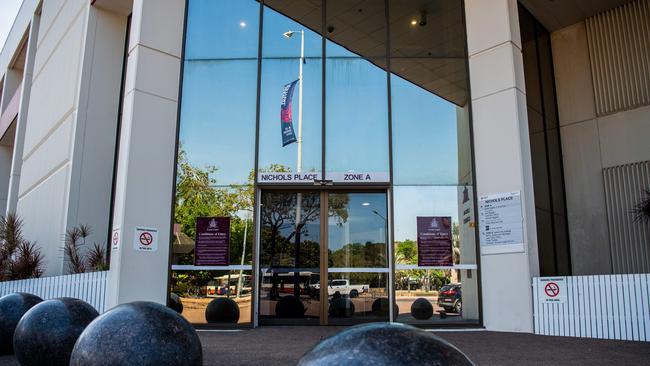
Police & Courts
Don't miss out on the headlines from Police & Courts. Followed categories will be added to My News.
‘Extraordinary’ arrest rates, limited cell capacity and understaffing have brought the Darwin local court to a standstill the day after tough new bail laws clicked into effect.
On Tuesday, Darwin Local Court Judge Greg MacDonald was told there were 31 people in police custody listed to appear, none of whom were ready for their hearings.
NT Legal Aid duty lawyer Laurence Waugh said he was unable to see any of his recently arrested clients, as only three in-custody matters had been brought to the court.
A Corrections officer told Mr MacDonald that due to “operational difficulties” including being “short staffed and whatnot” the prisoners were not able to be transported from the Palmerston watch-house in time.
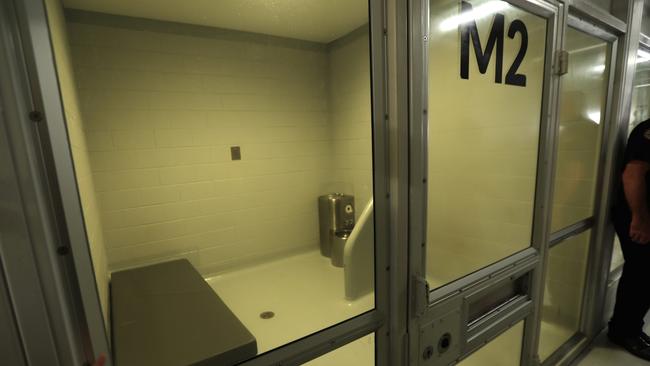
Outside the courtroom, Mr Waugh said the watch-house delays only worsened the court’s ability to deal with its stacked hearings list.
“The idea that a court is dealing with 31 people in custody in a single day is already pretty extraordinary, and it’s all the more challenging if lawyers can’t begin speaking to their clients until courts are already underway,” he said.
“Its vanishingly unlikely that all 31 people will be dealt with today, and there will be probably more tomorrow.
“It’s a compounding problem.”
It took the court more than 90 minutes before the first in-custody matters were heard, which included a woman who the judge said should be taken to hospital.
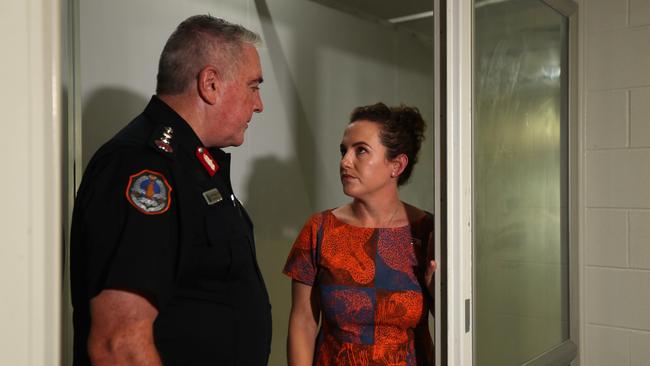
The chaotic court scenes come 24 hours after bail changes, known as ‘Declan’s Law’, kicked into effect on Monday.
The changes impose a presumption against bail for a number of serious violence and weapons offences, but also include nonviolent repeat offences for drug possession and stealing.
This takes the discretionary power out of the hands of police, and places them with the courts which can still grant bail.
The arrests since Declan’s Law came into effect appear to have already outpaced Darwin’s police cell facilities, with Corrections to completely take over both the Darwin and Palmerston watch-houses this week.
NT Police confirmed the only police holding cells in the Greater Darwin Area would be at the Peter McAulay Centre, in Berrimah.
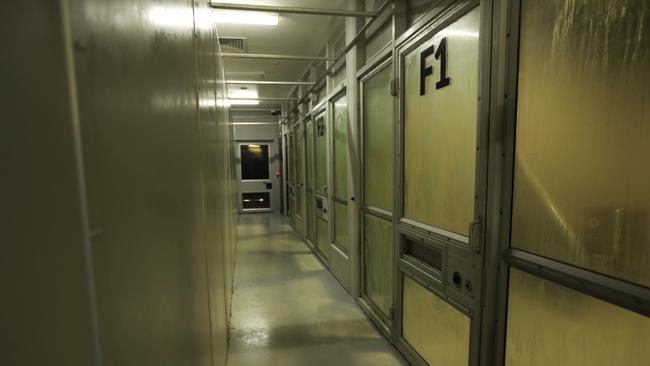
While Darwin and Palmerston watch-houses have a combined safe capacity of 140 people, Police Commissioner Michael Murphy said the Berrimah facility had space for around 16 people.
Northern Territory Police Association president Nathan Finn said there were major operational concerns about the sole use of the Berrimah centre for police arrests.
“Lodging prisoners within the facility can only be as a short term option only and will not sustain the required number of prisoners taken into custody by the NT Police Force,” Mr Finn said.
Mr Finn said cops were continuously being placed in positions of “enormous risk” by the strain of having Corrections overflow prisoners kept at police stations.
“These are temporary solutions to a much bigger problem which is going to be compounded with further changes made with the Bail Act, which come into effect on Monday,” he said.
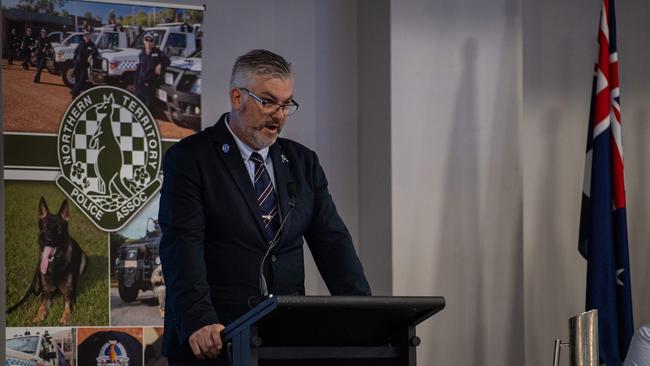
Mr Finn said there needed to be urgent work to address the “major correctional planning failures”.
“This is not a new issue and has occurred for years now but not to the extent to the grave situation we are seeing currently,” he said.
Currently more than 1 per cent of Territorians are behind bars — 47 per cent of whom are unsentenced.
The chaotic flow-on from the watch-house to the courts comes the day after Ms Finocchiaro said it was critical “our courts are working efficiently”.
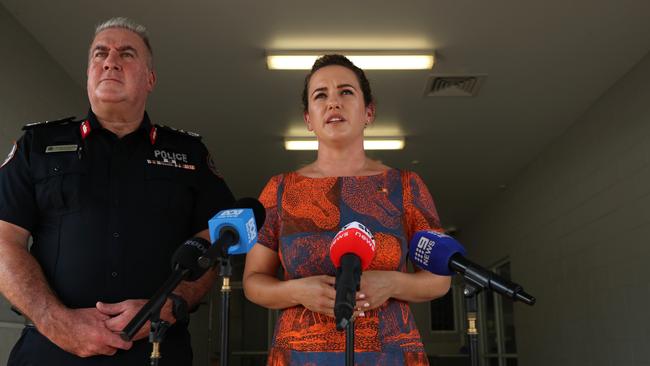
On Monday the Chief Minister said new judges had been appointed to break the “backlog” of cases in the local court and bring down remand rates.
“What we know is that with a corrections system in crisis, a court system in crisis, we’ve had to make some really tough decisions,” Ms Finocchiaro said.
“We have had to cease some programs of rehabilitation in prison because of the demand on prison services is so high, because Labor failed to adequately recruit and add the prison infrastructure that we need.
“The one thing we will make sure is that people’s right to be safe is above everything else.”
When asked if the bail changes without rehabilitation programs was just ‘kicking the problem down the road’, Ms Finocchiaro repeated her government was given a clear mandate to take “dangerous people off the street”.
The 2023 Bail and Weapons Offences Review Taskforce report found 91 per cent of people who were granted bail while charged with a serious violence offence did not go on to reoffend while in the community.





